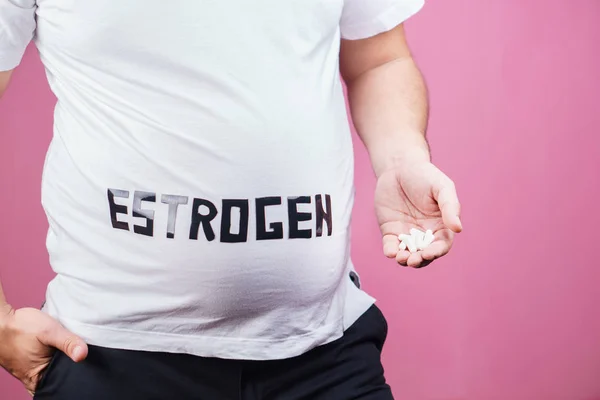Estrogen is an important hormone in the body that plays a crucial role in the development and maintenance of female reproductive organs and secondary sex characteristics. However, excess estrogen in the body can lead to a variety of health problems, including an increased risk of breast cancer, weight gain, mood swings, and more. In this article, we will discuss in detail how to flush out excess estrogen from your system.
Before we dive into the details, let’s first understand what estrogen is and why it is important.
What is Estrogen?
Estrogen is a group of hormones that are responsible for the development and regulation of female reproductive organs and secondary sex characteristics. It is produced primarily in the ovaries, but also in other tissues, such as the adrenal glands, fat cells, and the placenta during pregnancy.
Estrogen is important for:
- Regulating the menstrual cycle
- Maintaining bone density
- Supporting cardiovascular health
- Aiding in the development of female secondary sex characteristics, such as breasts and pubic hair.
However, too much estrogen in the body can lead to a variety of health problems.
What Causes Excess Estrogen?
There are several factors that can contribute to excess estrogen in the body:
- Hormonal imbalances: When the body produces too much estrogen or not enough progesterone, it can lead to an imbalance of hormones.
- Environmental toxins: Exposure to environmental toxins, such as pesticides, plastics, and synthetic hormones found in animal products, can disrupt the body’s natural hormone balance and lead to excess estrogen.
- Diet: Eating a diet high in estrogenic foods, such as soy products, flax seeds, and legumes, can increase estrogen levels in the body.
- Obesity: Fat cells produce estrogen, so having excess body fat can lead to excess estrogen.
- Medications: Certain medications, such as birth control pills and hormone replacement therapy, can increase estrogen levels in the body.
Now that we know what causes excess estrogen, let’s look at how to flush it out of the body.
- Eat a Healthy Diet
One of the most effective ways to flush out excess estrogen from the body is to eat a healthy diet that is rich in fruits, vegetables, whole grains, and lean protein. These foods contain fiber, vitamins, and minerals that can help regulate hormones and eliminate excess estrogen.
Foods to include in your diet:
- Cruciferous vegetables: Broccoli, kale, cabbage, and cauliflower contain a compound called diindolylmethane (DIM) that helps the liver metabolize estrogen.
- Leafy greens: Spinach, kale, and collard greens are rich in vitamin K, which helps regulate estrogen levels.
- Flax seeds: Flax seeds contain lignans, which can help reduce excess estrogen in the body.
- Citrus fruits: Oranges, lemons, and grapefruits contain a compound called d-limonene, which can help flush excess estrogen from the body.
- Omega-3 fatty acids: Salmon, sardines, and other fatty fish are rich in omega-3 fatty acids, which can help reduce inflammation and regulate hormones.
- Fermented foods: Yogurt, kefir, sauerkraut, and kimchi contain probiotics that can help support gut health, which is important for hormone balance.
Foods to avoid:
- Soy products: Soy contains phytoestrogens, which can mimic the effects of estrogen in the body and increase estrogen levels.
- Processed foods: Processed foods are often high in sugar, salt, and unhealthy fats, which can disrupt hormone balance.
- Alcohol: Drinking alcohol can increase estrogen levels in the body.
- Exercise Regularly: Regular exercise is important for overall health, but it can also help regulate hormones and eliminate excess estrogen from the body. Exercise can help reduce body fat, which is important since fat cells produce estrogen. It can also help improve insulin sensitivity, which can help regulate hormone balance.
Aim to get at least 30 minutes of moderate-intensity exercise most days of the week. This can include activities such as brisk walking, cycling, swimming, or strength training.
- Manage Stress
Stress can disrupt hormone balance and lead to excess estrogen in the body. When you are under stress, your body produces cortisol, which can interfere with the production of other hormones, including estrogen.
To manage stress, try relaxation techniques such as deep breathing, meditation, or yoga. You can also try talking to a therapist or counselor to help you develop coping strategies for dealing with stress.
- Avoid Environmental Toxins
Exposure to environmental toxins can disrupt hormone balance and lead to excess estrogen in the body. To reduce your exposure to toxins:
- Choose organic foods whenever possible to reduce exposure to pesticides.
- Use natural cleaning products and avoid products that contain synthetic fragrances, which can contain hormone-disrupting chemicals.
- Use natural personal care products, such as shampoo and soap, that do not contain hormone-disrupting chemicals.
- Avoid plastic containers that contain bisphenol-A (BPA), which can disrupt hormone balance.
- Get Enough Sleep
Getting enough sleep is important for hormone balance, as lack of sleep can disrupt the production of hormones, including estrogen. Aim to get at least 7-8 hours of sleep per night, and try to establish a regular sleep routine.
- Supplement with Nutrients
Certain nutrients can help support hormone balance and eliminate excess estrogen from the body. These include:
- Calcium D-glucarate: This nutrient helps the liver detoxify estrogen and can help reduce excess estrogen levels in the body.
- Magnesium: Magnesium is important for hormone balance and can help reduce symptoms of PMS.
- Vitamin B6: Vitamin B6 can help regulate hormone balance and reduce symptoms of PMS.
- Vitamin D: Vitamin D is important for bone health and can also help regulate hormone balance.
- Probiotics: Probiotics can help support gut health and improve digestion, which is important for hormone balance.
- Consider Hormonal Balancing Therapy
If you have tried the above strategies and are still experiencing symptoms of excess estrogen, you may want to consider hormonal balancing therapy. This can include natural remedies, such as herbs or supplements, or prescription medications that can help regulate hormone balance.
However, it is important to work with a healthcare provider who specializes in hormonal balancing therapy to ensure that you are receiving safe and effective treatment.
In conclusion, excess estrogen can lead to a variety of health problems, but there are several strategies that can help flush it out of the body. By eating a healthy diet, exercising regularly, managing stress, avoiding environmental toxins, getting enough sleep, supplementing with nutrients, and considering hormonal balancing therapy, you can help regulate hormone balance and improve your overall health.






